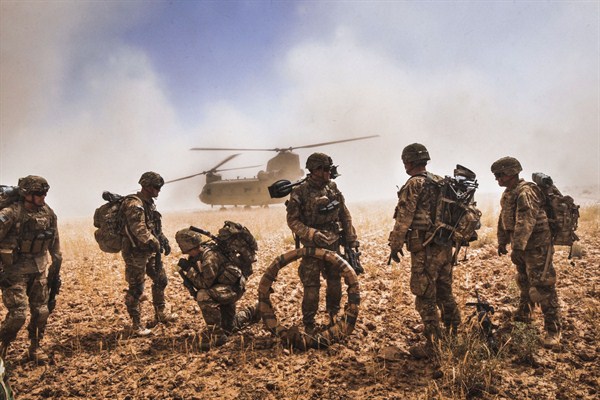A few years ago Afghanistan seemed on the path to success. The economy was doing relatively well. The Taliban were losing ground to Afghan security forces, the U.S. military and units from other partner nations. The new president, Mohammad Ashraf Ghani, seemed more willing to tackle Afghanistan’s deep political problems than Hamid Karzai, his erratic predecessor. By all indications, things were looking up.
Sadly this has proven to be an illusion. Ghani has not gotten a handle on Afghanistan’s crippling corruption, cronyism and ethnic strife. The country will not be able to function without massive economic assistance far into the future. And, most troubling of all, the security forces that the United States and its coalition partners built show no sign of being able to defeat the Taliban.
Last month Taliban forces seized Kunduz, their biggest gain since losing power in 2001. The Afghan military recaptured the city but only after several weeks of very hard fighting and heavy casualties. The Taliban undoubtedly will counterattack at some point and may take Kunduz again. In the southern province of Helmand, Nawzad district is close to falling into Taliban control. Today, in fact, the Taliban dominate 36 districts and contest government control in another 35.

